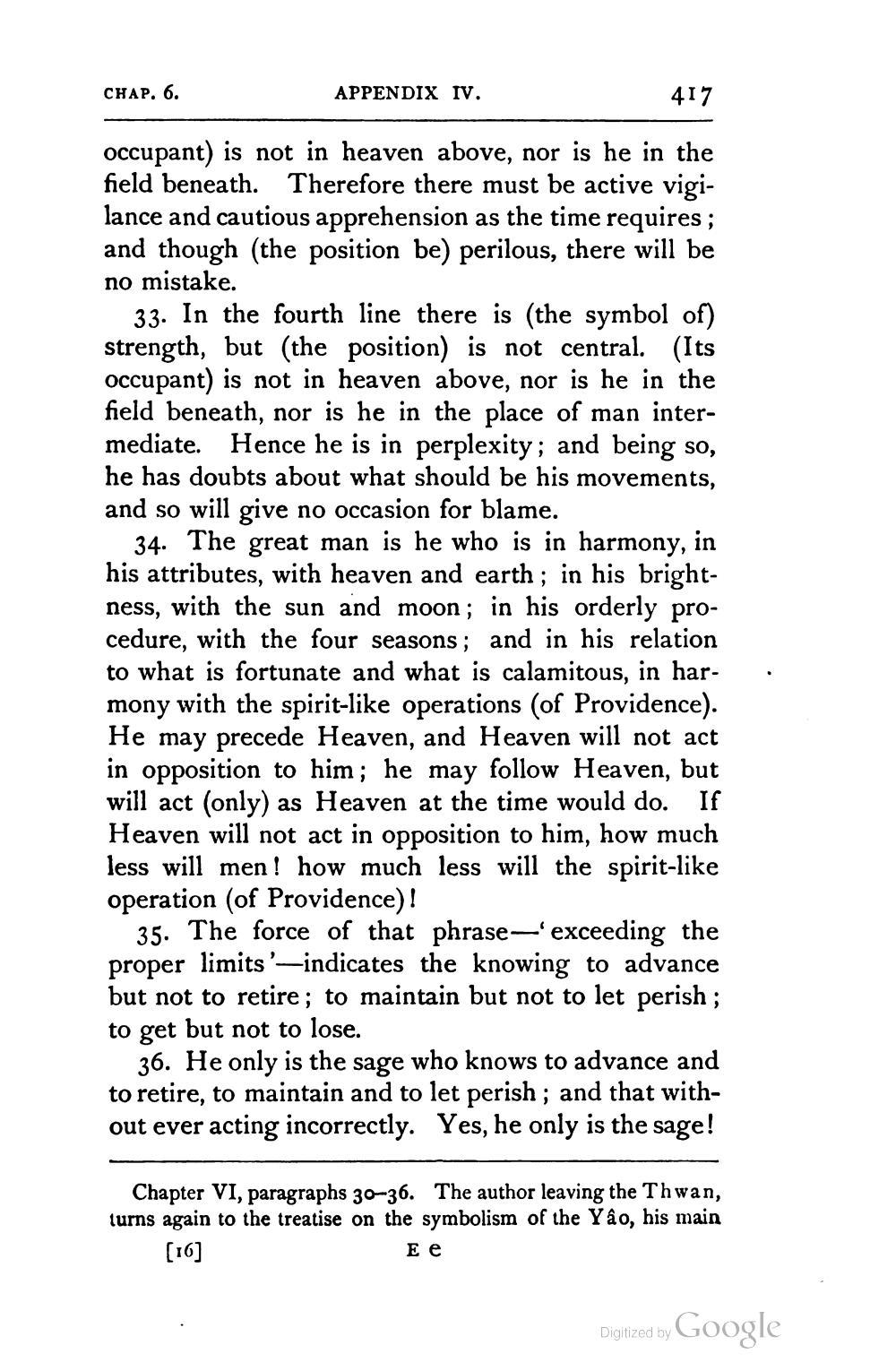________________
CHAP. 6.
APPENDIX IV.
417
occupant) is not in heaven above, nor is he in the field beneath. Therefore there must be active vigilance and cautious apprehension as the time requires ; and though (the position be) perilous, there will be no mistake.
33. In the fourth line there is (the symbol of) strength, but the position) is not central. (Its occupant) is not in heaven above, nor is he in the field beneath, nor is he in the place of man intermediate. Hence he is in perplexity; and being so, he has doubts about what should be his movements, and so will give no occasion for blame.
34. The great man is he who is in harmony, in his attributes, with heaven and earth; in his brightness, with the sun and moon; in his orderly procedure, with the four seasons; and in his relation to what is fortunate and what is calamitous, in harmony with the spirit-like operations (of Providence). He may precede Heaven, and Heaven will not act in opposition to him; he may follow Heaven, but will act (only) as Heaven at the time would do. If Heaven will not act in opposition to him, how much less will men ! how much less will the spirit-like operation (of Providence)!
35. The force of that phrase—'exceeding the proper limits '-indicates the knowing to advance but not to retire; to maintain but not to let perish; to get but not to lose.
36. He only is the sage who knows to advance and to retire, to maintain and to let perish ; and that without ever acting incorrectly. Yes, he only is the sage!
Chapter VI, paragraphs 30–36. The author leaving the Thwan, turns again to the treatise on the symbolism of the Yao, his main [16]
Ee
Digitized by Google
Digitized by




